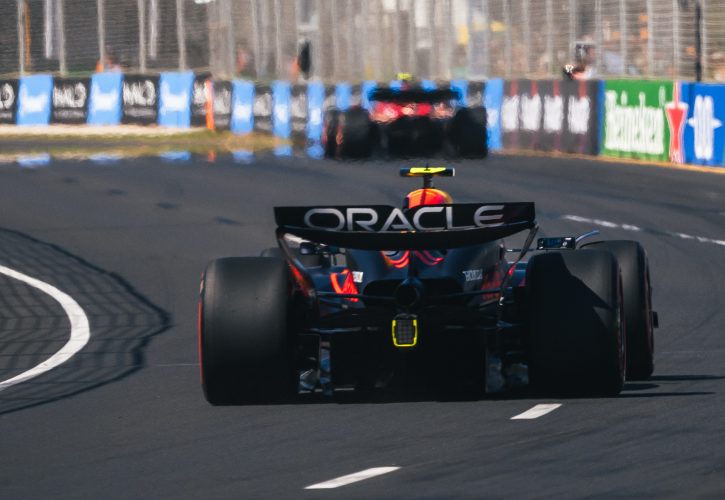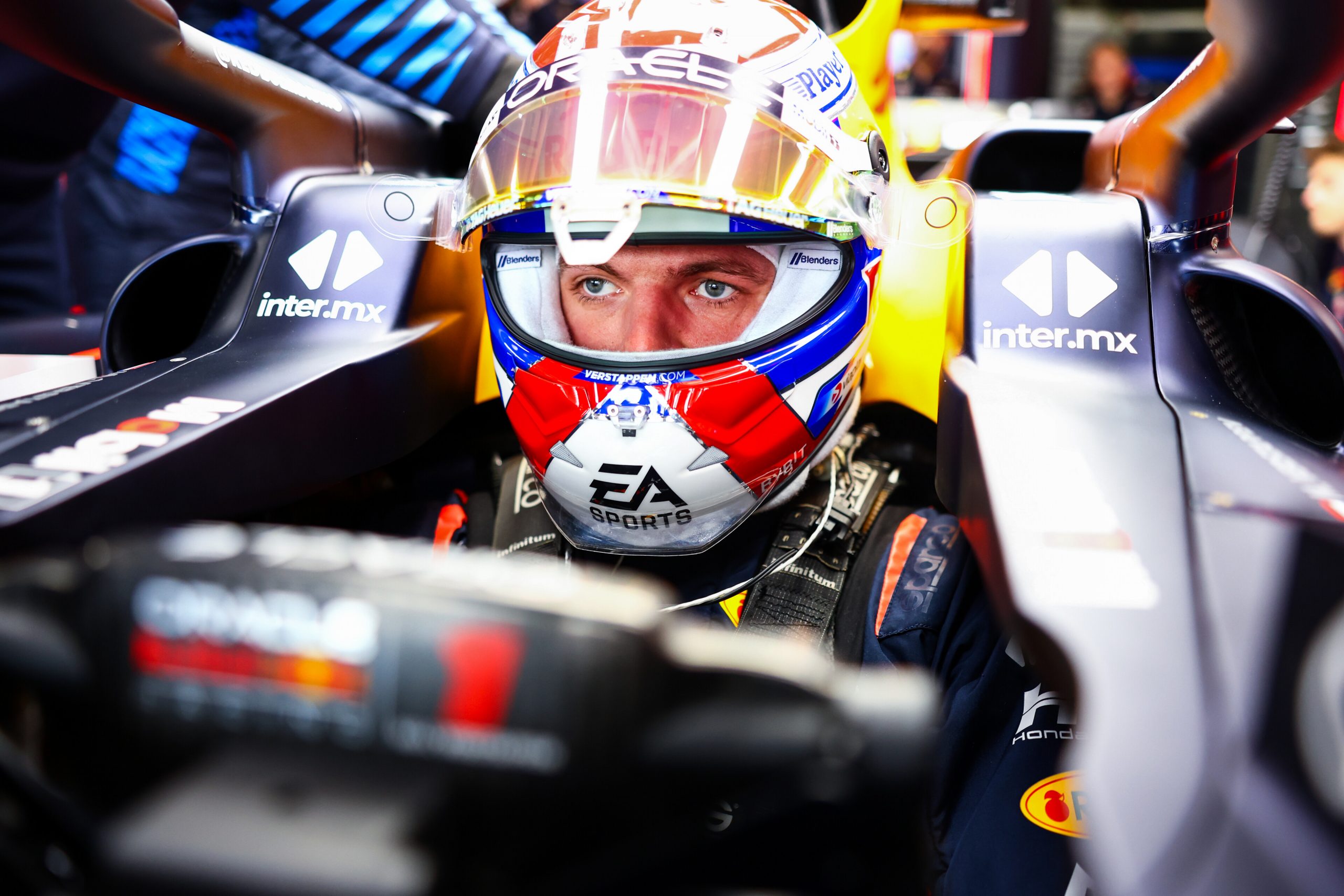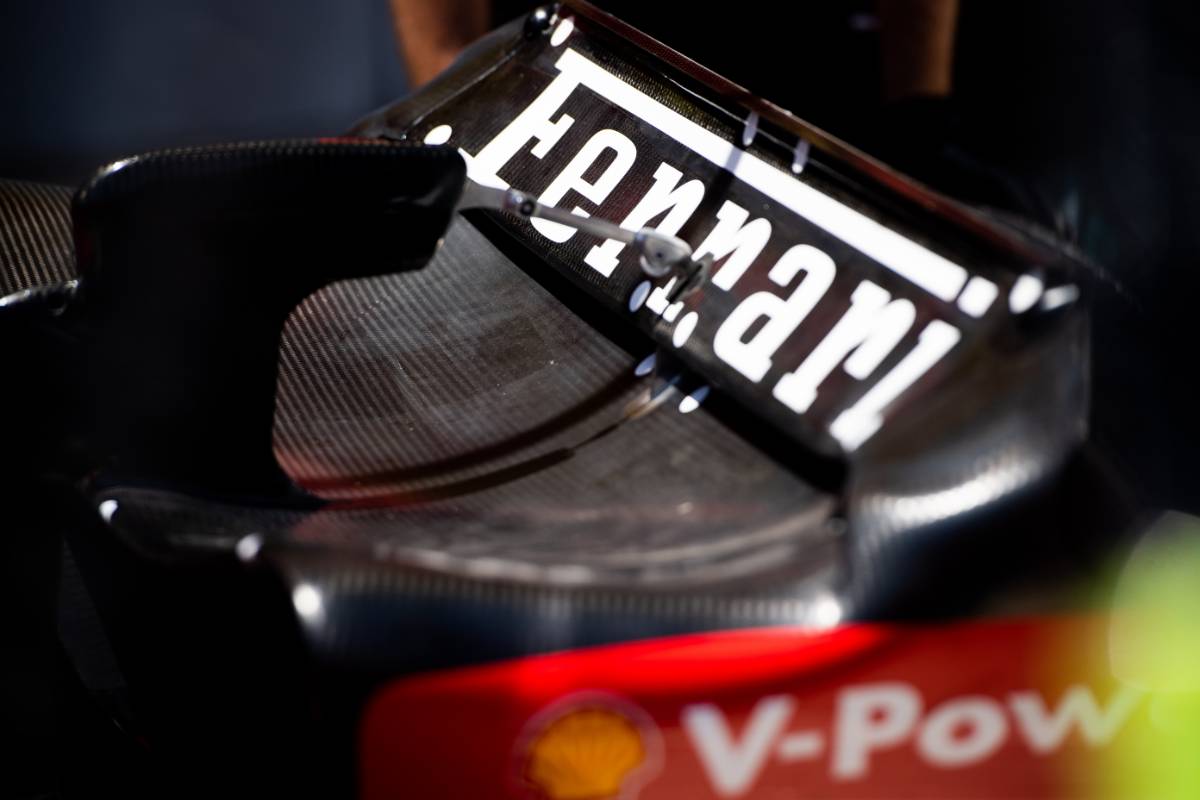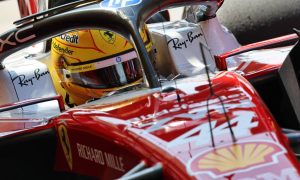
Max Verstappen has voiced strong reservations about Formula 1’s inclusion of active aerodynamics in its 2026 regulation overhaul.
The groundwork for the next generation of F1 cars is already laid out, with plans for smaller, lighter cars powered by a 50/50 split of internal combustion and electric engines.
While the sport’s next-generation engine regulations have been set in stone, chassis specification remain fluid, particularly regarding aerodynamics.
The FIA and Formula 1 have proposed a radical shift towards active aero systems, with a moveable rear wing as the initial centerpiece.
However, ongoing research and simulation work have led to worrying results regarding aero balance, with cars prone to spins under acceleration in a straight line or becoming very unstable when traveling at high-speed through the smallest of curves.
In response, the FIA has redirected its studies towards using movable wings on both the front and rear of the car, with the elements working in conjunction with each other to achieve a better distribution of the aero balance.
However, Verstappen remains unconvinced.
“I mean, I think we’ll have to deal with some compromises on some tracks, you know, where you use a lot of energy per lap,” commented the Red Bull driver, quoted by MotorsportWeek.com.
“And of course, you know, with the potential like active aero and stuff. I’m not sure if we should head into that direction. That’s what it’s looking like at the moment.
“Hopefully, we can optimise all these kind of things
“For me, it’s more important to just try and fight the weight of the cars, try and optimise that instead of all these tools and tricks to try and help the overtaking or following.

“There must be different ways to be able to do it. I guess, also, with the engine regulation that they went into, they kind of need to do that to create the top speed and basically you know where the battery stops deploying and stuff.
“And yeah, some tracks will work a bit better some tracks probably it’s a bit more on the edge.
“Of course, people will try to counter my arguments but I guess we’ll find out anyway and in ‘26, but also I’m not really thinking, of course, too much about it because we have a lot of work in the seasons up until ‘26. But we’ll see if we can improve it a bit.”
Ferrari’s Carlos Sainz argued that the reliance on active aero was a direct consequence of F1’s engine regulations, whereby there will be a need to compensate for the expected energy recovery deficit and to help overtaking.
“I think it’s all a consequence of the engine regulations,” said the Spaniard. In the end, if you have a lot more energy requested from the electric powertrain, you’re going to need to have, in a way, active aerodynamics to compensate.
“And there is where it all starts to get messy with the overtaking and the active aero and how you can do that to help the car to go quicker on the straight and spend less time full throttle.”

However, Sainz was reluctant to judge the innovative concept before it has been seen in action.
“Until we try them, I think it’s unfair to criitcise or back the regulations,” he said.
“At the same time, if it has attracted manufacturers, big manufacturers like Audi, into the sport, I think it’s something that it has to be appreciated and put into context.
“My personal view is that these cars now are probably just too big and too heavy. If I would have to change something for tomorrow, it would be that.
“And then the suspension, I think the suspensions are becoming a big talking point in a lot of the tracks and how we brought them into some corners and how taxing it can be for the driver.”

©Ferrari
While on the topic of active aero, Sainz proposed that the FIA should explore incorporating active suspension systems to enhance driver well-being and safety.
“If we are going to have active aero, why not active suspension to protect the back of the drivers and to protect our own health and the safety of certain tracks?” he stated.
“it’s clear that right now we are asking way too many things to the tracks and to the circuits, to the organisations, to change many small bumps that before we wouldn’t even feel with the ‘21 car, and now we just can spin or have a pretty big accident because of those situations.
“So if I would have to ask or add one thing for the ‘26 would be something to protect us a bit on that front.”
Keep up to date with all the F1 news via Facebook and Twitter






